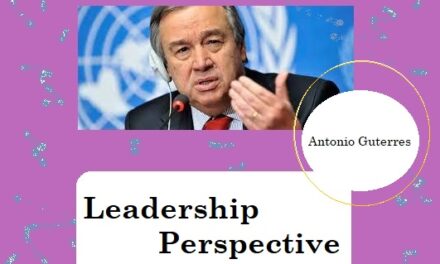The Beehive Girl on Artificial Intelligence
By Anelie Petrus Eniola /
Are we curious enough about AI in Southern Africa?
Artificial Intelligence (AI), in its simplest terms, refers to the simulation (or imitation) of human intelligence by machines, particularly computer systems.
AI encompasses a range of technologies that enable machines to learn from data, recognize patterns, solve problems, and make decisions with minimal human intervention.
These systems operate by perceiving their environment, interpreting information, and using that understanding to perform tasks or make decisions autonomously, aiming to achieve specific goals efficiently.
AI applications span multiple domains, including machine learning (ML), natural language processing (NLP), and robotics, impacting industries such as healthcare, finance, energy, and transportation.
As the world becomes more digital, my curiosity about AI led me to read ‘The Human Edge’ by Greg Orme. This book made me question whether we are curious enough about Artificial Intelligence in Southern Africa. As Orme indicates in his book, AI is no longer the exclusive domain of tech professionals; it is something we all need to understand to navigate the modern world.
The book explains the following 4C’s:
Consciousness: How can we ensure that we are aware or at least have the basic information on this subject?
Curiosity: Imagination and asking questions, the desire to know more,
Creativity: How can we create a culture of creativity?
Collaboration: Networking, partnering with like-minded individuals.
Now let’s first have an opinion from a subject expert on Artificial intelligence, Mr Joseph Lumbahe, a distinguished leader in AI and technology, known for his multifaceted expertise spanning Business, Engineering, IT, Consulting, and Management.
With a background in Electrical and Computer Engineering, Computer Science and Information Systems, and Financial Engineering from prestigious institutions, Joseph has leveraged his education to spearhead groundbreaking initiatives.
Formerly the Global Manager and Lead AI Engineer at AIZATRON GROUP, Joseph drove the development of cutting-edge AI solutions, including Computer Vision and Large Language Models, elevating the company’s profile across Africa and the UK.
His leadership extended to pivotal roles in AIOps and Fraud Detection Engineering for MTN South Africa.
He recently transitioned to a new unique global AI specialised team at Microsoft as the first appointed Microsoft Senior AI Technology Specialist specializing in AI Application Development in South Africa.
Joseph underscores his commitment to pushing the boundaries of AI application and development. At Microsoft, Joseph architects and implements end-to-end AI solutions, integrating Azure OpenAI and Cognitive Services to deliver scalable, secure, and innovative applications. He collaborates closely with stakeholders to drive AI-powered prototypes that demonstrate transformative potential across industries.
Joseph plays an important role in South Africa’s maturity in the rise of AI. His active memberships with esteemed professional bodies like the Electrical and Electronics Engineers (IEEE), Advancement of Artificial Intelligence (AAAI), and Institute of Information Technology Professionals South Africa (IITPSA) ensure Joseph stays attuned to industry advances.
Joseph’s outstanding contributions have been consistently recognised with multiple accolades:
Honored as the ‘Most Influential AI Technology Business Leader (Africa)’ by the African Excellence Awards 2024; and honored with the ‘UK MEA Market Award’ which recognises and honor businesses in the Middle East and Africa region for their excellence, innovation, and leadership; and awarded the ‘Africa Tech Rising Star Award’ in 2022 which celebrates emerging talent in African tech across the continent’s 54 countries, among many of his accolades.
As an entrepreneur, Joseph co-founded Bus54, a pioneering mobility tech venture in Africa, aiming to digitally revolutionize intercity bus transportation across the Continent’s 54 nations. Joseph Lumbahe | LinkedIn
Is Southern Africa Curious Enough About AI?
Joseph says that yes, Southern Africa is increasingly curious about AI, with Cape Town emerging as a prominent technological hub on the continent.
“The city’s thriving tech scene, bolstered by its growing number of startups and access to venture capital, is fostering innovation and AI-driven solutions in sectors like finance, healthcare, and education,” he says.
In addition, he points out that the formation of professional organizations such as the South African Artificial Intelligence Association (SAAIA) in 2023 reflects a growing commitment to AI adoption.
“These organisations play a crucial role in advocating for responsible AI, building awareness, and promoting the development of AI technologies across the region,” he states. “While the curiosity is evident, challenges like education, infrastructure, and widespread adoption still need to be addressed to realize AI’s full potential.”
Now back to Greg Orme’s 4 C’s and AI in Southern Africa:
Consciousness
Orme indicates that building consciousness about AI in Southern Africa starts with raising awareness of its transformative potential and the ethical concerns it brings. He points out that people need to understand that AI isn’t just a distant concept but a powerful tool already shaping industries like finance, healthcare, and agriculture.
Public education campaigns, government-led initiatives, and industry forums can help demystify AI, allowing the broader population to engage with it.
Schools and universities should incorporate AI-related courses into their curriculums, equipping students with the knowledge and skills to adapt to the changing technological landscape.
Additionally, Orme says, public discourse on AI ethics, such as the implications for data privacy, bias, and job displacement, should be encouraged, ensuring responsible and inclusive adoption across different sectors.
Curiosity
Curiosity about AI fuels the drive for innovation and research, which is essential for developing solutions tailored to the region’s unique challenges.
Southern Africa has vast potential to tap into AI-driven technologies that can address local problems, such as improving access to healthcare, optimizing resource management, and enhancing educational platforms. Encouraging this curiosity can begin by creating environments that stimulate experimentation—through hackathons, research competitions, and innovation hubs.
Universities and research institutions should invest in interdisciplinary studies that combine AI with sectors like agriculture, healthcare, and engineering.
Moreover, mentorship programs and partnerships with global tech companies can give young African innovators the tools and resources they need to explore AI’s full potential. With a culture of curiosity, the region can generate local AI solutions that empower communities and drive socio-economic development.
Creativity
Creativity in AI isn’t just about technical innovation, it’s about applying AI solutions in ways that solve real-world problems and spark new ways of thinking.
Southern Africa has a rich cultural heritage that can be leveraged to produce AI applications in fields such as music, art, storytelling, and marketing. Integrating AI into creative industries could lead to groundbreaking work that merges technology with traditional African art forms, setting the continent apart on the global stage.
Furthermore, interdisciplinary collaboration is key—tech companies should work alongside industries like agriculture, healthcare, and manufacturing to create AI-driven innovations that enhance productivity and sustainability.
This blending of creativity and technology will not only foster economic growth but also offer new opportunities for Africa to export innovative solutions globally.
By nurturing creativity, Southern Africa can become a hub for diverse AI applications that reflect the region’s unique strengths and values.
Collaboration
Collaboration is essential for the successful adoption of AI across Southern Africa. Governments, private companies, educational institutions, and international organizations must work together to build a strong AI ecosystem.
Public-private partnerships can drive the development of AI infrastructure, providing access to the necessary computational resources and platforms.
Moreover, collaborative efforts between local and global stakeholders can bring advanced AI research, funding, and expertise into the region, accelerating innovation. AI solutions tailored to local challenges can emerge from these partnerships, such as applications in agriculture, water management, and urban planning.
Collaboration also extends to policymaking government bodies which must work with tech experts to create regulations that ensure ethical AI use and protect the interests of vulnerable populations. Through a united effort, Southern Africa can maximize AI’s potential across industries while ensuring the benefits are widely shared.
Suggestions to Tackle AI Challenges:
Infrastructure Development: Governments should prioritize building digital infrastructure, including high-speed internet access and affordable computational resources, to support AI innovation. This could include public-private partnerships to fund tech infrastructure projects.
Education and Skills Development: Universities and tech institutes need to create AI-focused programs and provide training for professionals and students. Initiatives like coding boot camps, online learning platforms, and AI research grants could help close the skills gap.
Ethical AI Frameworks: Governments and tech bodies should collaborate to establish robust ethical guidelines and policies to address data privacy and ensure AI is used responsibly. These guidelines can be modeled on existing international best practices, ensuring transparency and fairness in AI use.
Inclusive AI Strategies: Policymakers should design AI initiatives that consider underrepresented communities, ensuring equitable access to AI benefits. Providing AI solutions tailored to agriculture, healthcare, and education in rural areas can bridge the tech divide.
Job Creation through AI: To counter fears of job loss, initiatives could focus on reskilling workers and identifying new roles that AI will create, such as AI management, data analysis, and machine learning operations. AI should be seen as an enabler of growth rather than a threat to employment.
Therefore, as Greg Orme, an award-winning author and business keynote speaker, explores how curiosity and creativity are critical assets in the digital world, and Joseph Lumbahe points out the significant role Artificial Intelligence is set to play in our daily lives, it is a must that we take this topic of AI with all seriousness as individuals and as nations.
References
Artificial intelligence – Google Cloud
– Anelie Petrus Eniola is a communication practitioner and marketing assistant with a heart for community development. She is also an upcoming writer and an entrepreneur at the beehivegroup. Instagram: @beehivegroup

(In the photo, is Joseph Lumbahe, the AI expert)







